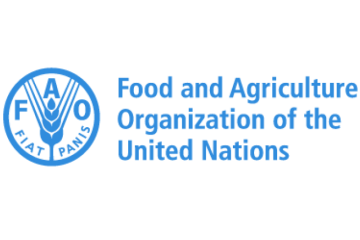Study of the socio-economic impacts of non-timber forest products (NTFPs) in Africa Bénin, Burkina Faso, Cap-Vert, Côte d’Ivoire, Gambie, Ghana, Guinée, Guinée-Bissau, Libéria, Mali, Mauritanie, Niger, Nigeria, Sénégal, Sierra Leone, Togo, Angola, Cameroun, Congo, Gabon, Guinée équatoriale, République centrafricaine, République démocratique du Congo, Sao Tomé-et-Principe, Tchad, Afrique du Sud, Botswana, Eswatini, Lesotho, Namibie, Burundi, Comores, Djibouti, Erythrée, Ethiopie, Île Maurice, Kenya, Madagascar, Malawi, Mozambique, Ouganda, République unie de Tanzanie, Rwanda, Seychelles, Somalie, Soudan du Sud, Zambie, Zimbabwe, Algérie, Egypte, Libye, Maroc, Soudan, Tunisie
![]() AGRICULTURE
AGRICULTURE ![]() FORESTRY
FORESTRY

Services: Strategic analysis and foresight, Monitoring, evaluation and capitalisation
Countries: Bénin, Burkina Faso, Cap-Vert, Côte d’Ivoire, Gambie, Ghana, Guinée, Guinée-Bissau, Libéria, Mali, Mauritanie, Niger, Nigeria, Sénégal, Sierra Leone, Togo, Angola, Cameroun, Congo, Gabon, Guinée équatoriale, République centrafricaine, République démocratique du Congo, Sao Tomé-et-Principe, Tchad, Afrique du Sud, Botswana, Eswatini, Lesotho, Namibie, Burundi, Comores, Djibouti, Erythrée, Ethiopie, Île Maurice, Kenya, Madagascar, Malawi, Mozambique, Ouganda, République unie de Tanzanie, Rwanda, Seychelles, Somalie, Soudan du Sud, Zambie, Zimbabwe, Algérie, Egypte, Libye, Maroc, Soudan, Tunisie
Dates of intervention: 2010/09 - 2011/01
Main backer: Organisation des Nations Unies pour l’alimentation et l’agriculture - Client
Main beneficiary: Organisation des Nations Unies pour l’alimentation et l’agriculture
Support provider: Anis CHAKIB
Experts: Anis CHAKIB
Etat des Produits forestiers non-ligneux (PFNL) en Afrique en 2012
Context of the service
Nearly 80% of the population in developing countries, particularly in Africa, self-consumes non-timber forest products (NTFPs) for health care and food. Many NWFPs also have commercial value, both nationally and internationally.
For these reasons, FAO's Forestry Department is particularly interested in the socio-economic role of NWFPs in Africa and their contribution to food security on the continent.
In 2001, FAO has national NWFP reports for each African country and six subregional reports. Ten years later, in a context where many international projects were increasingly interested in the issue, and where new data were available on the issue, FAO wished to update these national and subregional reports on NWFPs and their socio-economic and food impacts.
Services provided
The expert carried out the following tasks, in coordination with the NWFP Chief of Service at FAO:
- Review and analysis of an abundant bibliography available on NWFPs in Africa (species, practices, consumption, trade, socio-economic impacts, threats, management, etc.),
- E-mail and telephone exchanges with different national and regional experts to collect data and analysis related to NWFP,
- Update of 53 national reports on NWFPs in African countries,
- Update of 6 sub-regional reports on NWFP: North Africa, West Africa, Central Africa, East Africa, Southern Africa and East African Island States,
- Participation in events organized at FAO for the World Forest Week and participation in conferences organized within the framework of the Committee on Forestry (COFO) 2010.
Summary of the service
Study of the socio-economic impacts of non-timber forest products (NTFPs) in Africa: Bibliographic review; Exchanges with many African experts on NWFP; Update of 53 national reports, 6 regional reports and the FAO NWFP database; Presentations at World Forest Week and Committee on Forestry (COFO) 2010.